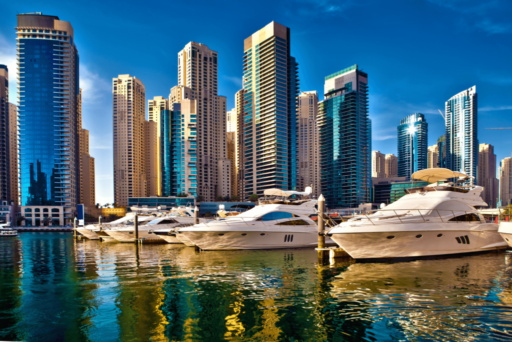
Real Estate Investment Outlook: Luxury Market Projections 2024-2031
In the dynamic landscape of real estate investment, the luxury market stands out for its resilience and potential for significant returns, drawing attention from high-net-worth individuals and real estate investment firms alike. With a focus on prime locations, unique design, and concierge services, luxury residential properties, including luxury apartments and villas, offer more than just living spaces; they represent a lifestyle choice backed by luxury brands. Real estate developers are increasingly leveraging smart home technology and innovative architectural design to meet the rising demand for luxury homes, making this sector one of the most intriguing areas of market growth and investment opportunities.
This article delves into the real estate investment outlook for the luxury market from 2024 to 2031, providing a comprehensive overview of current market trends, segmentation, and regional analysis. By examining the evolving preferences for architectural excellence and the integration of technology in luxury properties, alongside the strategies of real estate investment companies to cater to the desires of high-net-worth individuals, it offers insights into future market growth and the development of luxury commercial and residential properties. The forthcoming sections will explore key market trends that are shaping the future of luxury real estate, offering a roadmap for potential investors and stakeholders looking to capitalize on the lucrative opportunities within this segment.
Market Overview
The luxury real estate market is poised for substantial growth, with projections indicating a Compound Annual Growth Rate (CAGR) of 11.9% from 2024 to 2031. This growth is driven by a combination of factors including technological advancements, market demand, and evolving consumer preferences towards luxury living spaces.
Global Market Growth Rates
The global luxury real estate market is experiencing significant expansion across various regions. North America, particularly the United States and Canada, continues to be a strong market due to the rising demand for high-end properties. Europe remains a popular destination for luxury real estate with countries like Germany, France, the U.K., and Italy showing increased investments. In the Asia-Pacific region, nations such as China, Japan, South Korea, and India are emerging as key players, with other countries like Australia and Malaysia also showing potential for growth. The Middle East & Africa, with markets in Turkey, Saudi Arabia, and the UAE, are experiencing growth driven by economic developments and increased demand for premium properties.
Regional Market Insights
In the United States, the luxury real estate market shows varied performance with regions like New York, New Jersey, and Massachusetts witnessing robust growth due to their economic resilience and high living standards. However, areas such as California and Oregon are experiencing declines, influenced by economic uncertainties and shifting buyer preferences. The Southeastern states display a mixed performance, emphasizing the importance of nuanced market analysis for investment decisions. Emerging luxury markets in states like Colorado, Utah, and Idaho are gaining popularity due to their scenic beauty and recreational opportunities, attracting a new demographic of luxury buyers.
Internationally, the Asia-Pacific region is seeing a dynamic shift with countries like China and India leading the growth, driven by increasing urbanization and rising disposable incomes. Latin America’s markets, including Brazil and Mexico, are thriving due to economic improvements and a growing number of high-net-worth individuals seeking luxury properties.
This comprehensive overview of the luxury real estate market underscores the importance of strategic planning and informed decision-making for investors and businesses looking to capitalize on the lucrative opportunities presented by this dynamic sector.
Key Market Trends
Technological Advancements
The luxury real estate market is witnessing significant technological innovations that redefine the buying and managing of properties. Dubai, for example, is at the forefront of digital innovation in real estate transactions, adopting cryptocurrency and blockchain technology to enhance the speed, security, and global accessibility of property transactions. This aligns with Dubai’s reputation for efficiency and forward-thinking business practices. Additionally, the rise of “Proptech” or property technology is transforming how properties are bought, sold, and managed, with artificial intelligence (AI) playing an increasingly significant role. AI is not only streamlining property listings but is also expanding rapidly in other areas of real estate management.
Smart home technology is another pivotal trend, with advanced home automation systems becoming standard in luxury homes by 2024. These systems integrate features like voice-controlled environments, smart kitchens, and enhanced security systems, providing both convenience and a high-tech lifestyle.
Sustainability and Eco-friendly Features
Sustainability is becoming a cornerstone of luxury living, with eco-consciousness deeply integrated into the high-end lifestyle. Modern luxury homes are increasingly incorporating sustainable technologies such as solar panels, energy-efficient appliances, and sustainable building practices. Properties that feature LEED certification or other green building certifications are particularly attractive in the market.
The focus on sustainable living extends to various aspects of home design and management. Energy-efficient windows, LED lighting, and smart therapeutics are becoming standard features in luxury homes, contributing to significant energy savings and environmental benefits. Additionally, the integration of gardens, whether vegetable gardens or green walls, is not only enhancing the aesthetic and value of luxury properties but also promoting a sustainable lifestyle by reducing carbon footprints and improving air quality.
In summary, the luxury real estate market is evolving with a strong emphasis on technological innovations and sustainability, making these homes not only more luxurious but also more aligned with future living standards.
Market Segmentation
The segmentation of the luxury real estate market is crucial for understanding the dynamics and opportunities within this sector. It allows investors and developers to target specific consumer segments more effectively.
By Type
The luxury real estate market is primarily categorized into three types: single-family homes, condos, and townhouses. Each type caters to varying preferences and lifestyle needs. Single-family homes continue to dominate the market, offering privacy and space which are highly valued by high-net-worth individuals. Condos are popular in urban centers due to their convenience and often come with high-end amenities. Townhouses serve as a middle ground, offering elements of both single-family homes and condos.
By Application
Market segmentation by application divides properties into residential and commercial categories. The residential sector is seeing significant growth, driven by high-net-worth individuals seeking luxury homes that combine comfort with high-tech amenities. The commercial sector, although smaller, is also experiencing growth, particularly in prime locations where businesses seek to enhance their brand image by situating in prestigious areas.
The understanding of these segments helps in tailoring marketing strategies and development projects to meet the specific needs and preferences of target customers, thereby enhancing the potential for investment returns in the luxury real estate market.
Regional Analysis
North America
In North America, the luxury real estate market is robust, particularly in the United States and Canada, where there is a significant demand for high-end properties. This region is expected to see considerable growth during the forecast period, driven by the high adoption of advanced technology and the presence of major players in the market.
Europe
Europe continues to be a strong market for luxury real estate, with Germany, France, the U.K., Italy, and Russia experiencing increased investments. The region is projected to witness a magnificent growth in its compound annual growth rate (CAGR) during the forecast period from 2024 to 2031.
Asia-Pacific
The Asia-Pacific region is emerging as a dominant force in the luxury real estate market, expected to hold a market share valuation of 45%. Countries like China, Japan, South Korea, India, Australia, Indonesia, Thailand, and Malaysia are seeing a surge in luxury property investments, driven by economic growth and increasing urbanization.
Latin America
Latin America’s luxury real estate market is thriving, particularly in Mexico, Brazil, Argentina, and Colombia. These countries have witnessed a surge in development, fueled by economic improvements and a growing number of high-net-worth individuals seeking luxury properties.
Middle East & Africa
The Middle East and Africa are expected to dominate the luxury real estate market in the coming years. Countries like Turkey, Saudi Arabia, the UAE, and South Africa are experiencing growth due to their expanding economies and increasing demand for premium properties. This region’s market growth is bolstered by economic developments and a focus on luxury living.
Reflecting on the evolving dynamics of the luxury real estate market from 2024 to 2031, it becomes evident that the blend of technological innovation, sustainability, and changing consumer preferences is setting a new benchmark for luxury living. The projection of substantial growth across various regions underscores the significance of strategic investment and the opportunities that lie within the luxury sector. Strategies that emphasize architectural excellence, eco-friendliness, and the integration of advanced technologies are particularly poised to meet the demands of the high-net-worth individuals driving this market.
Given this landscape, the importance of informed decision-making and strategic foresight cannot be overstated for investors and stakeholders looking to navigate the luxury real estate market. The potential for significant returns is clear, particularly for those who can adeptly tap into the trends of digital innovation and eco-conscious living that are defining the future of luxury properties. As we move forward, the evolving preferences and requirements of the luxury market segment present both a challenge and an opportunity to redefine what luxury living means in the contemporary world.






